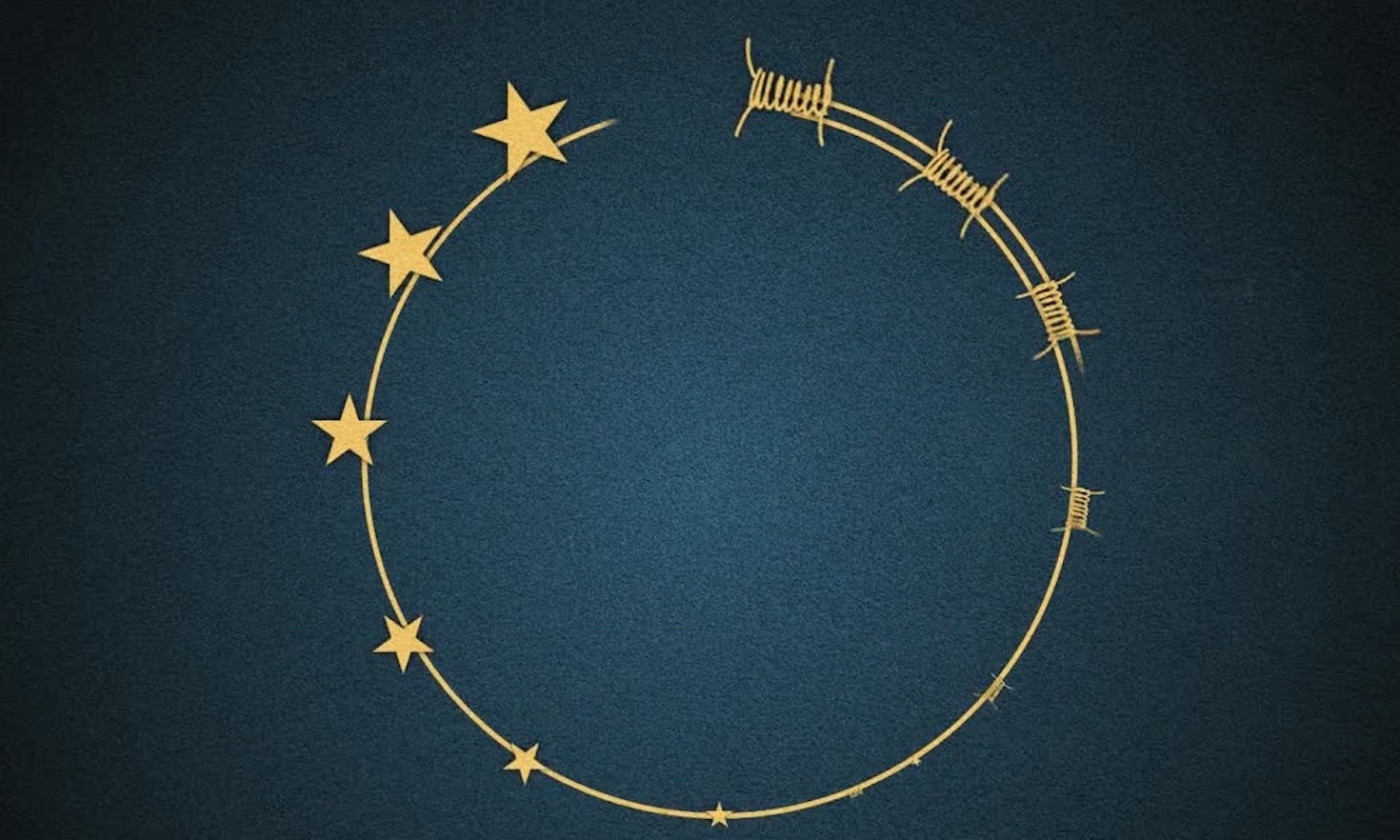Lesbo Island: the EU’s and western legal tradition’s failure

All animals are equal, but some animals are more equal than others.
George Orwell (in: Animal Farm)
Twelve-thousand people in the streets, trying to protect themselves from the heat – and the hate – gathered everywhere, nowhere for them to go. They represent the 0,00026% of the EU’s population and they cannot be welcomed anywhere. In the last few days only two solutions have been put forward: to rebuild the Moria camp and to reinforce a “global approach to migration policies”, i.e. to strengthen externalisation policies. The contradictions underlying this dramatic situation are anything but hidden. They are evident, they cannot be overlooked: if we are not able to recognise them, then our eyes must be closed. Against this backdrop, there is one paradoxical aspect that emerges overwhelmingly in all its ambiguous and frightening consequences. It is related to some basic principles that are supposed to be shared throughout the EU.
If we look at the goals of the European Union, we find, among otherspeace, its values and the well-being of its citizens; offering freedom, security and justice without internal borders; ensuring a sustainable development; combatting social exclusion and discrimination; enhancing economic, social and territorial cohesion and solidarity among EU countries; respecting its rich cultural and linguistic diversity. Besides this, we can also observe a list of “EU values”, “common to the EU countries in a society in which inclusion, tolerance, justice, solidarity and non-discrimination prevail”: human dignity, freedom, democracy, equality, rule of law, human rights. These principles, also explicitly set out by the EU Charter of Fundamental Rights and the European Convention of Human Rights, are common to all members of the Union and protect our lives from the possibility of a resurgence of totalitarianism and war. In short, they undeniably constitute the core of the EU as “a community based on the rule of law”. Over the decades, they have been concretely enforced in several ways, including an enduring ECJ case law, the introduction of a mechanism of conditionality for accessing the EU (the so-called Copenhagen criteria) and the procedure provided for by art. 7, TEU, which can lead to the suspension of “certain of the rights deriving from the application of the Treaties” to a member state in cases of a “serious and persistent breach” of the values referred to in art. 2, TEU by the state in question.
Here is the paradox: today’s reality demonstrates that these fundamental principles and values are not considered as being completely sustainable if they are too widely shared or extended, they can only work for a limited number of people. In other words, there is not enough room for everyone in the well-being part of the world. The legal categories thus show all their weaknesses in front of the Realpolitik, their malleability and, finally, their real condition of empty concepts, disguised as universal legal principles. They exist as such only as long as they apply to the EU citizens.
However, this is not only the EU’s failure. It is the failure of the whole western legal tradition, with its fictitious pledges of universality that still somewhat hide a colonialist and liberal-nationalist mindset. This is not a previously unexperienced situation and it has to do with the concept of equality and its implementation. Indeed, equality has justified and still – in various ways – justifies discrimination and inequalities, always being applied as an enforceable principle to only a part of society in the western world. Today’s situation is not that different from two centuries ago, when slavery was legitimate in many parts of the western civilised world, or from the XIX century, when the democratic principles, rights and guarantees arisen from the French revolution applied to a tiny group of equals.
The western world is still applying equality as an elitist principle – disguised as universal – even though the addressees are evidently more than in the past and its meaning has gained more inclusiveness. Indeed, this progressive extension of the beneficiaries – which must be judged positively – is evidently too slow; as a consequence, our equality (and all the correlated principles that go along with it: pluralism, democracy, dignity and others) still comes as a rival asset, not enjoyable by everyone.
The theory of rights can be considered as a – successful – outcome of an ideological and political approach to human life and societal organisation[2], whereby all human lives have dignity, all deserve to be free and treated as valuable, all need to be protected from discrimination and violence. If we share this view in our legal systems, how then can this be compatible with the Moria camp?
Today just as yesterday, the real challenge is then to question the liberal nationalist imprinting of certain western legal categories, in order to achieve a society of equals ruled by a technically refined, flexible, diverse and inclusive law. Otherwise, our idea of equality will remain a manipulable chimera.
[1] From this list only some strictly economical goals have been excluded.
[2] Liberal values and principles, albeit increasingly acceptable throughout the world, should in fact be relativized in order not to fall in ethnocentric standpoints.

Tags
Citation
This content is licensed under a Creative Commons Attribution 4.0 International license except for third-party materials or where otherwise noted.
![[IT] La Web Tax italiana](https://webassets.eurac.edu/31538/1599754574-the-new-york-public-library-kajlrqwt5yy-unsplashresized34.jpg?w=425&h=288&fit=crop&crop=focalpoint&fp-x=0.5&fp-y=0.5&auto=[format,compress]&cs=origin&dpr=1)






